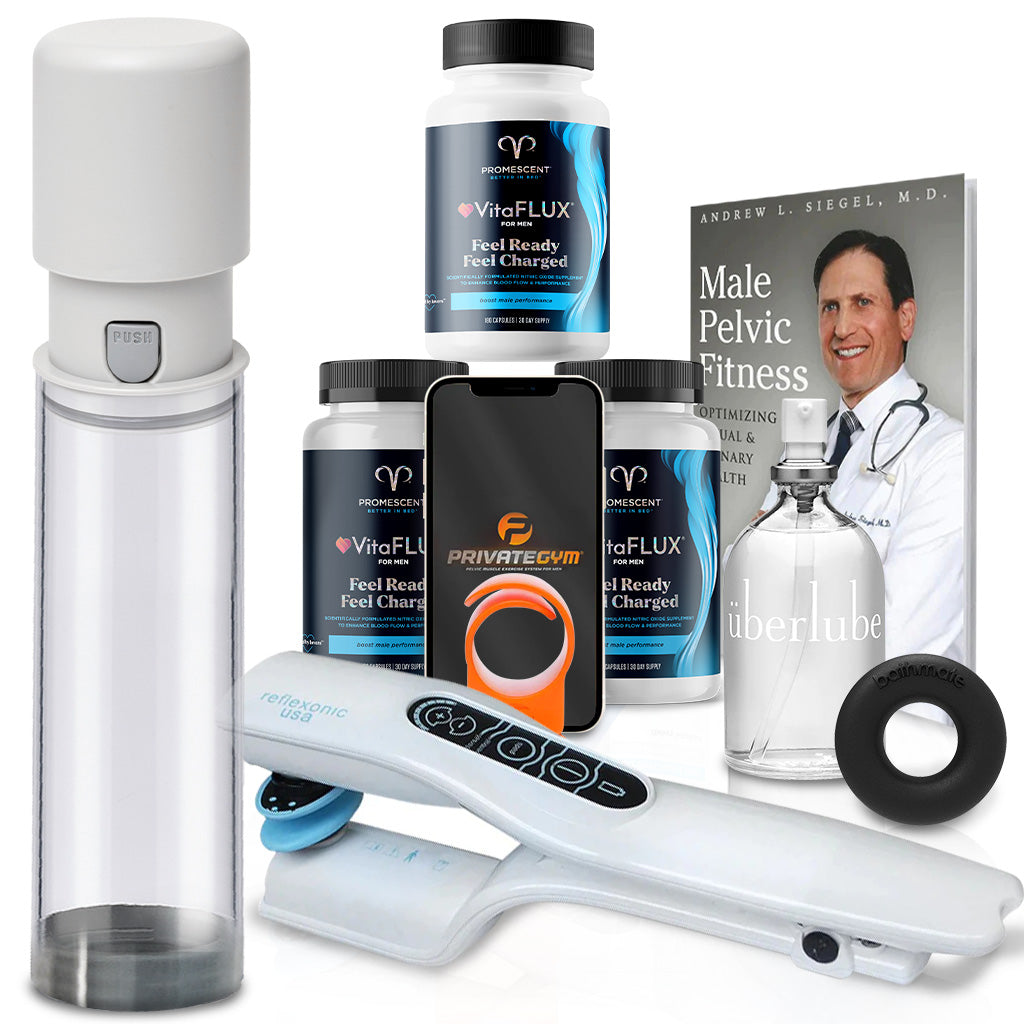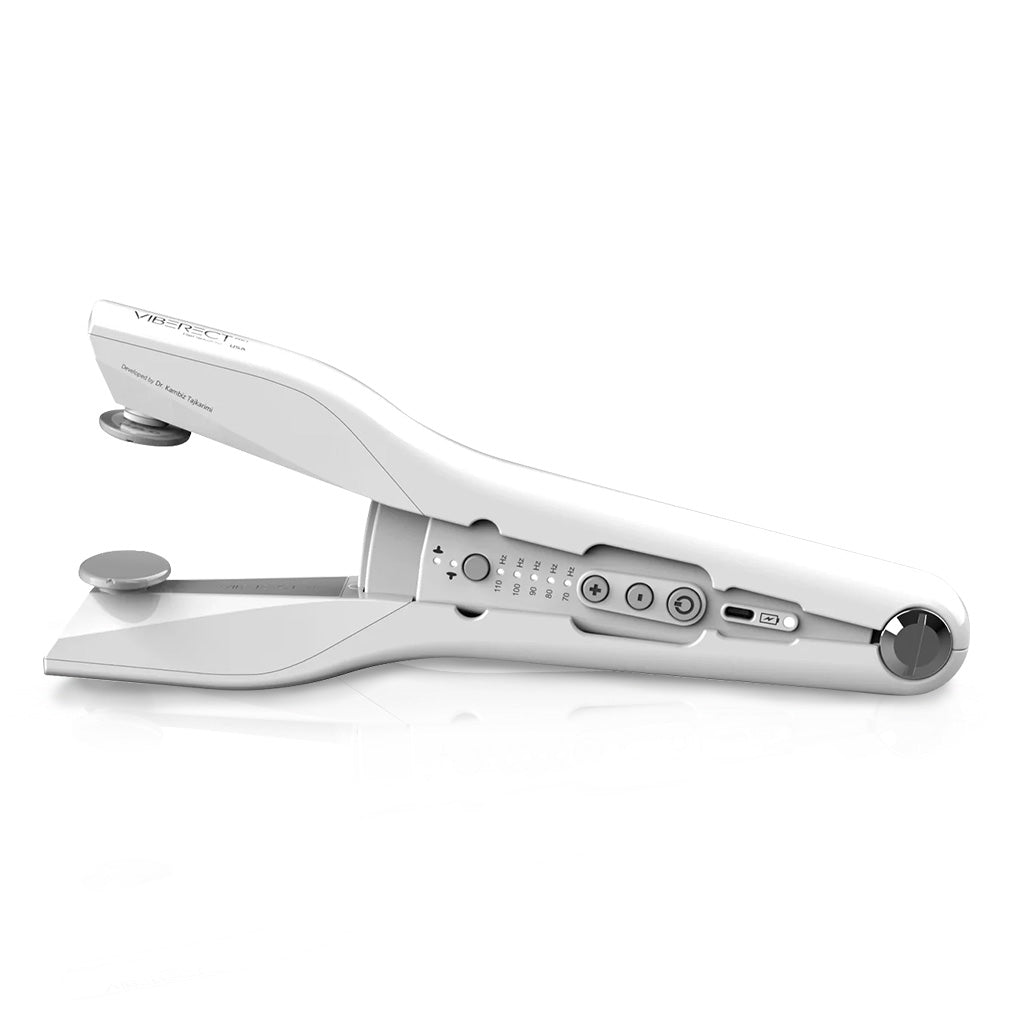PREVENT & REVERSE ERECTILE DYSFUNCTION

RESTORING ERECTILE FUNCTION NATURALLY
Are you experiencing difficulties with your erections? Does it take more time to get an erection? When you get an erection, is it softer? Do you struggle to keep it up? If you answered yes to any of these questions, then you may be experiencing some form of erectile dysfunction, and you're not alone. Also referred to as impotence or ED, erectile dysfunction affects millions of men every year in the United States and around the globe.
Weak erections, premature loss of erections, the inability to achieve an erection, and increased time before another erection can be achieved, are all forms of ED. This widespread sexual dysfunction doesn't discriminate. ED impacts men of all ages. According to research studies by the Journal of Sexual Medicine, 25% of men under forty are at risk of ED. By age 40, over 40% of men suffer from some form of ED. Unfortunately, the statistics continue to get worse with age. After 40, your chances of experiencing loss of erectile function increases by 10% each decade.
SO WHAT CAUSES ED?
There is no simple answer here. Diminished erectile function, ED, and reduced sexual performance can be caused by numerous physical, physiological, and environmental conditions. We'll explore many of the causes below. The good news, however, is that we've made significant advancements over the last two decades in the treatment of erectile dysfunction.
ED medications like Cialis (tadalafil), Viagra (sildenafil), Levitra (vardenafil) have helped millions of men, who suffer from erectile dysfunction caused by poor blood flow to the penis. Unfortunately, millions of other men are unable to take these medications due to underlying health conditions. Besides, ED medications are costly, have uncomfortable side effects, and only work for 50% of men. More importantly, the loss of sexual function may not be a blood flow issue at all and could be caused by depression, weight gain, performance anxiety, complications from prostate cancer surgery or treatment, or other lifestyle changes.
The good news? There are many non-pharmaceutical options to treat ED. In many cases, ED can be prevented and reversed without the use of drugs or expensive therapies. Before we explore natural solutions in greater detail, let's first understand how an erection works.
THREE KEY COMPONENTS FOR A HEALTHY ERECTION
Where does your erection start? If you said "in the penis," you are way off. In fact, by several feet in many cases. The human erection begins in the brain. Just like most important functions in the body, your brain controls all of your vital organs. When it comes to creating an erection, your brain sends a message, through the pudendal nerve that runs along your spine and connects the brain to the penis. This signal from the brain tells your penis to fill with blood. More specifically, it causes the arteries to relax, allows blood to flow in, while at the same time engages the pelvic muscles, which force the blood into the penis and keep it in, causing the penis to expand. Simple hydraulics. Maximizing the inflow of blood, while minimizing outflow.
Healthy erections require three key components:
1) Strong pelvic muscles
2) Healthy blood circulation
3) Proper nerve sensitivity and stimulation.
1) STRONG PELVIC MUSCLES
Unbeknownst to most men, the pelvic floor muscles play a critical role in the "hydraulic" science behind the creation of rigid and long-lasting erections. These small, but very important muscles compress the roots of the penis (the deep, inner part of the penis), elevate the blood pressure within the penis, by pushing more blood into the penis, and stay contracted so the blood cannot escape. The pelvic muscles are largely responsible for creating and maintaining a hypertensive penis, where the blood pressure in the penis exceeds the normal blood pressure in the body and causes bone-like rigidity.
Unfortunately, the pelvic muscles are weak, to begin with, and only get weaker with age, resulting in soft erections, decreased sexual performance, and premature ejaculation. However, with some effort and the right program, these muscles can be strengthened and properly maintained throughout a lifetime.
2) HEALTHY PELVIC BLOOD FLOW
The penis needs a steady stream of blood to enable an erection. Without good blood circulation and flow, the pelvic muscles are unable to create an erection.
3) GOOD NERVE SENSITIVITY
The pudendal nerve runs down the spinal cord and provides a critical connection between the brain and the penis. When properly stimulated, this nervous system sends the needed signal from the brain to the penis, telling it to fill with blood. To create and maintain a strong and rigid erection, you must have proper nerve stimulation and sensitivity.
Now that we know what is needed to create an erection, let's explore the underlying causes of ED and what can be done to prevent and reverse the condition.
WHAT CAUSES ERECTILE DYSFUNCTION?
Erectile dysfunction is a complicated condition for many men. For some, getting an erection is as easy as closing their eyes and imagining something erotic. For others, however, achieving an erection is quite difficult and may require medication, therapy, extreme stimulation, or hours of planning.
Getting an erection is an intricate process. It requires hormones, nerves, muscles, blood, veins, capillaries, arteries, and emotions to all work together. ED can result if any component is out of sync, impaired, or affected such as blood vessel damage or nerve damage or as a side effect to medications.
The following is a list of the most common physical and psychological causes of ED that can impact these three key ingredients:
PHYSICAL CAUSES OF ERECTILE DYSFUNCTION
• Cardiovascular Disease (heart disease): Because erections are heavily affected by blood circulation and pressure, heart disease can and will affect the strength of your erection. If you are taking blood pressure medication this may also be causing ed.
• Prostate Cancer Surgery & Treatment: complications and effects of prostate cancer surgery and treatments are one of the leading causes of ED in men over 50.
• Atherosclerosis (clogged and restricted arteries): Clogged arteries can restrict blood circulation throughout the body and the penis.
• High Blood Pressure: Too much pressure with your artery walls can damage your heart, organs, and weaken your erections. Medications such as diuretics that are used for the treatment of High blood pressure can also impact your sex life.
• Diabetes: diabetes, especially those with type 2 diabetes, can suffer from ED caused by damage to nerves and blood vessels from poor long-term blood sugar control.
• Obesity: Being overweight significantly impacts vascular health, testosterone production, erectile function, sexual performance, and self-esteem. Eating healthy, reducing fat and weight loss can help improve ed symptoms of sexual performance across the board.
• Parkinson's Disease: Since Parkinson's Disease impacts the central nervous system, men with Parkinson's Disease may find themselves unable to contract their pelvic muscles, attain or maintain an erection, and/or ejaculate.
• Multiple Sclerosis (MS): ED related to MS is often caused by neurological dysfunction, psychological factors, side effects of medication, or generalized MS symptoms, such as fatigue or micturition problems.
• Selective Serotonin Reuptake Inhibitors (SSRIs): Antidepressant medication, commonly called serotonin reuptake inhibitors or SSRIs, causes erectile and ejaculatory dysfunction and can affect sex drive.
• Tobacco: It's no secret that smoking is detrimental to your health, but it can be especially detrimental if you suffer from ED. Tobacco smoke damages your blood vessels, which worsen the blood supply to your penis.
• Peyronie's Disease: Caused by major traumatic injury to the penis and by the cumulative effects of chronic penile micro-traumatic injuries from sexual activities. Scar tissue, which is hard and inelastic, builds up in the penis and prevents proper expansion of the erectile chambers.
• Alcoholism and Alcohol Consumption: Alcohol impacts health and blood circulation in the body. 72% of men with alcohol dependence were found to have erectile dysfunctions within a controlled study.
• Sleep Disorders: Sleep disorders, such as sleep apnea, are known to contribute to ED due to reduced oxygen levels in the body.
• Low Testosterone: This powerful hormone is directly responsible for sexual arousal, increased libido, strong sexual performance. Low levels of testosterone can help cause erectile dysfunction.
• Stress and Behavior: Relationship problems and lifestyle choices can impact your desire and ability to perform sexually.
PSYCHOLOGICAL CAUSES OF ERECTILE DYSFUNCTION
The psychological causes of ED can be just as complex, if not more complex, than the physical causes. The following are the three most common psychological causes of male sexual dysfunction.
• Performance Anxiety & Stress: Anxiety of any form, particularly before intercourse, can cause the release of powerful hormones, such as adrenaline, which can significantly impact erectile function.
• Depression: While depression can cause a lack of interest in sex, lower libido, and general withdrawal, it is often the medications such as antidepressants to treat depression that cause ED. Antidepressant medication, commonly called serotonin reuptake inhibitors or SSRIs, causes erectile and ejaculatory dysfunction.
• Low Self-Esteem and Guilt: Feelings of inadequacy, inability to perform sexually, and guilt associated with lack of performance can all contribute to sexual dysfunction.
HOW CAN I REVERSE ED NATURALLY?
There are several things many men can do to safely and naturally prevent ED and reverse the symptoms causing ED. The following are some of the easiest and most effective ways to improve your sexual health and performance:
• Exercise daily and improve cardiovascular health
• Lose weight (if you are obese) to improve circulation and testosterone levels
• Change your diet and lower your weight if you are obese
• Strengthen your pelvic muscles
• Improve nerve stimulation and sensitivity in the penis and pudendal nerve
• Try meditating and using relaxation exercises to control your heart rate, regulate blood circulation in the body, and lower stress
• Explore sex therapy with a licensed sex therapist for ED related to self-esteem, anxiety, relationship, and sexual function issues
• Experiment with high-quality herbal supplements that help support healthy circulation, reduce high blood pressure, improve blood flow, and raise testosterone levels
• Consider acupuncture, which has been shown to reduce stress, improve blood circulation, and reduce and reverse ED
• Heighten sexual stimulation with a high-quality lubricant
As with any potential erectile dysfunction treatment, we highly suggest that you consult your doctor for medical advice and properly weigh all risk factors.
While all of the above treatments can help improve sexual function, strengthening your pelvic muscles has been proven to be one of the most effective solutions for not only preventing and reversing erectile dysfunction, but also for stopping premature ejaculation, improving sexual performance, and increasing sexual self-confidence.
STRENGTHEN YOUR PELVIC MUSCLES FOR HARDER & LONGER LASTING ERECTIONS
How do you effectively strengthen your pelvic muscles? Why isn't there an exercise program designed specifically to improve the size and strength of the muscles that control your penile and ejaculatory function?
There is. You just didn't know about it.





































